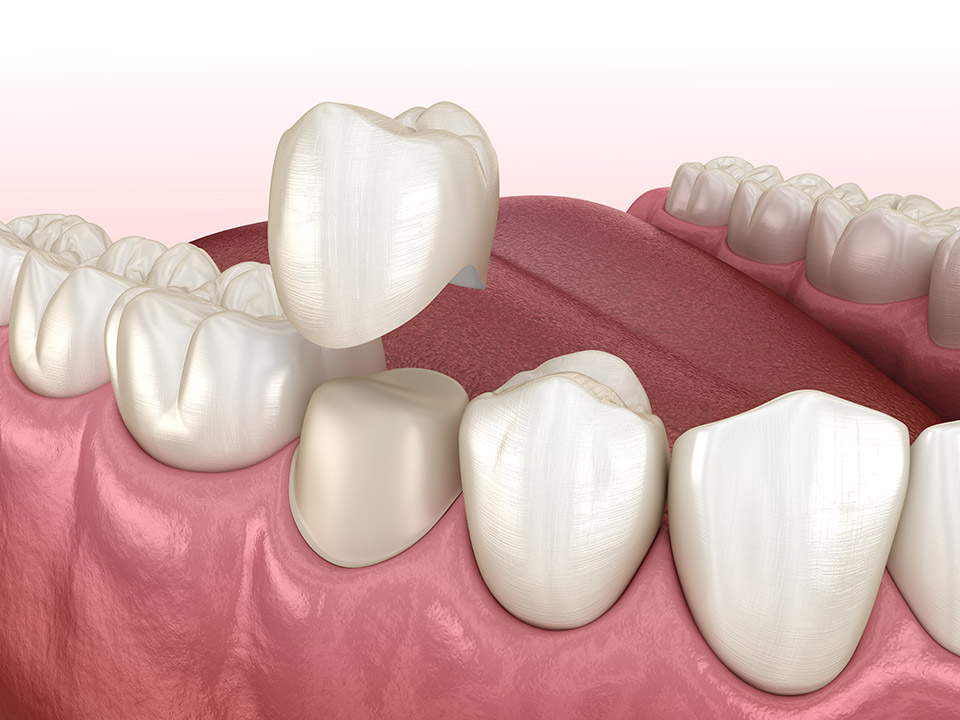Toothaches are a menace, mainly because the pain can be acute, and you still need the problematic tooth for daily nourishing. One major cause of toothache is root canal infection which happens when the tissue inside your tooth decays. In such a case, the recommended course of action is to get root canal surgery.
The problem arises when deciding what to do with the tooth after the surgery. Considering the treatment procedure involves the doctor drilling a hole in your enamel to get to the infected tissue, you will need some filling to cover the hole. You have two options: get the whole crown replaced or fill the hole with resin.
Because the latter is cheaper, many people usually consider going that route, but is it a viable long-term solution?
What Is a Dental Crown?
A dental crown is a lab-designed tooth crown placed on top of your damaged teeth to mimic the natural enamel. While it is usually put in different scenarios, it is highly recommended for people who have broken or hollow teeth so that they can be able to eat their regular foods without fear of breaking/rotting the rest of the tooth.
When having root canal surgery, your dentist will have to drill deep inside your tooth to get to the infected area. Afterwards, he/she will fill up the tooth. At that point, your tooth will have lost all its blood vessels, which are its primary source of nutrition. Therefore, it’s safe to say your tooth will then be dead.
Having a prosthetic crown is a great idea considering your dead tooth will now be prone to breakage as it isn’t receiving the nutrients that allow it to strengthen itself over time. However, if the problematic tooth is among your front teeth and wasn’t entirely drilled out, you can get by with just a filling.
Advantages of Dental Crowns After Root Canal Surgery
In an ideal situation, everyone who goes through a root canal surgery will get a dental crown fixed as the structural integrity of their tooth has been severely compromised. However, since the dentist can’t decide for you, below are a few reasons why you should go that route.
Reduced Future Damage
Statistics show that teeth that have undergone root canal surgery are six times more susceptible to breakage when compared to regular teeth. This is because the teeth aren’t receiving any nourishment and instead just wither away after each heavy bite.
Therefore, if you choose to get a filling instead, chances are your teeth will break after a few years, which isn’t a pleasant experience.
Cheaper in the Long Run
While getting a filling is the cheaper option in the short run, this won’t be the case until your teeth break a few years later. Worst case scenario, your filled tooth breaks due to the constant pressure it is exposed to every day; it will be too compromised for you to salvage the broken part.
Therefore, you will need a lab-designed tooth implant that is even more expensive. Don’t forget you will also have to pay for the additional dental visits, a cost you could have avoided.
Is Aesthetically Pleasing
When you opt to get a dental crown after your surgery, the team will have designed a crown that fits your tooth perfectly and is the same color and size as your other teeth. This way, no one will ever be able to tell you had any work done on your tooth.
Alternatively, if you choose to get a filling, you cannot color-match the filling to the rest of your teeth. Therefore, it will always stand out, which is not aesthetically pleasing, especially if the tooth is in the front of your mouth.
Prevents Bruxism Damage
Bruxism is a condition where someone cannot help but subconsciously keep grinding their teeth together. In such a case, the person causes immense damage to their healthy teeth as they are constantly under pressure. Therefore, if a person gets their tooth filled instead of crowned, they will destroy it quickly as the tooth is already compromised.
So, it’s in the best interest of anyone with bruxism to get a dental crown and save themselves from the impending damage, which can also affect the neighboring teeth.
When Can I Get Away With a Filling Instead of a Dental Crown?
From the above segments, you might be wondering why getting your tooth filled is even an option. Well, it’s because it is an ok route to follow in certain situations.
Below are a few instances where getting a filling instead of a dental crown is acceptable:
If the Initial Infection Was Surface Level
While most people wait until they are in acute pain to get their teeth checked, others opt for regular check-ups. If you are one of the latter, your dentist can catch an impending infection before it gets too deep.
In such a case, the dentist will only need to drill away the tiny part of the tooth that is infected. Thus, if the surrounding tooth is sound, you can get it by filling the hole with resin, as most of the teeth are still healthy.
If It’s Part of Your Front Teeth
We mainly use our back teeth to grind and chew hard foods. As for our front teeth, we simply bite into soft foods which don’t take a lot of pressure.
Therefore, if the tooth that has undergone the root canal surgery is part of your incisors, you can get away with filling the hole instead of replacing it altogether, seeing that the chances of it breaking are pretty slim.
Conclusion
Before a dentist suggests you get a root canal surgery, chances are you have been feeling pain, and the tooth is severely infected. In that scenario, you will be given the option of either completing the surgery by filling the whole with resin or replacing the crown altogether. Make an Appointment today!







